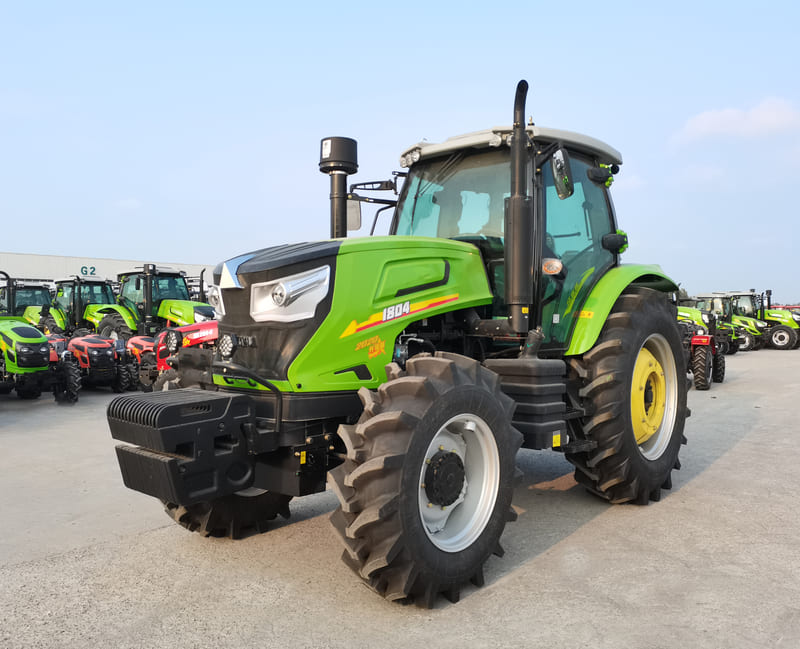Remember the first time I got behind the wheel of a diesel tractor? It was like driving a powerhouse on wheels.
Diesel farm tractors offer unparalleled fuel efficiency, impressive torque, and exceptional durability, making them perfect for challenging agricultural tasks.
I've always been fascinated by how diesel engines seem to never tire, powering through long days in the fields with ease. Their fuel efficiency means fewer stops for refueling, which saves both time and money. Plus, the sheer power of diesel engines is unbeatable when tackling heavy-duty work like plowing or hauling. It's like having a reliable workhorse that just keeps going. And let's not forget their longevity—my first diesel tractor is still running strong after years of tough work. It's these qualities that make diesel tractors a smart investment for anyone serious about farming.
Diesel tractors offer superior fuel efficiency in farming.True
Diesel engines are more efficient, providing better fuel economy for agricultural tasks.
Electric tractors provide higher torque than diesel tractors.False
Diesel engines are known for their high torque output, surpassing electric options.
How Do Diesel Tractors Enhance Fuel Efficiency?
Ever wondered how diesel tractors manage to keep running longer and stronger without guzzling fuel? Let's dive into the secret sauce behind their efficiency.
Diesel tractors boost fuel efficiency by achieving higher energy output per fuel unit, thanks to high compression ratios and superior combustion processes. Their durable design means less maintenance, ensuring steady performance over time.
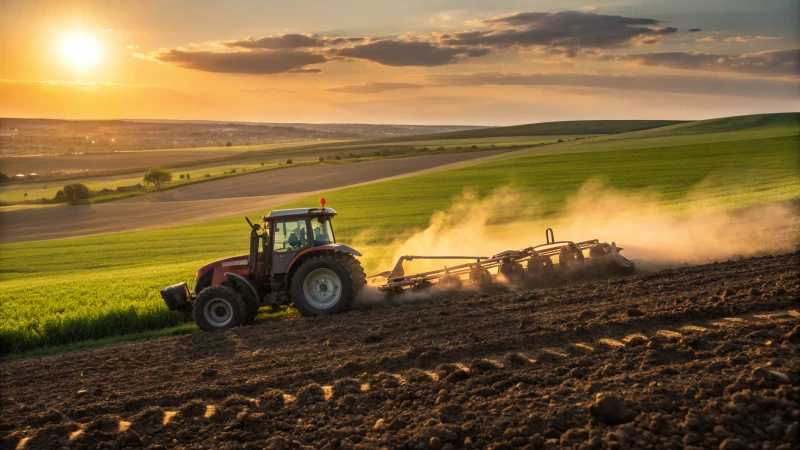
The Science Behind Diesel Efficiency
Imagine standing in a field, watching the sunrise as your trusty diesel tractor hums along, effortlessly powering through rows of crops. The secret to its endurance? Diesel engines work wonders with higher compression ratios1, squeezing every bit of energy from the fuel. This magic happens through efficient air-fuel mixing and a more deliberate burning rate. It's like getting more mileage from every sip of coffee on a long day—more power with less fuel.
Torque and Power Dynamics
I remember the first time I took the wheel of a diesel tractor. The sheer power was like nothing I'd ever felt before. Unlike gasoline engines that need high speeds, diesel engines deliver impressive torque at lower RPMs. This is perfect for heavy-duty tasks like plowing or towing—basically, anything where you need muscle without burning too much fuel. It’s like having a strong friend who doesn't tire easily.
| Engine Type | Torque | RPM Range |
|---|---|---|
| Diesel | High | Low |
| Gasoline | Moderate | High |
Maintenance and Longevity
Diesel engines are built tough. I once had a friend who joked that his diesel tractor would probably outlive him—and he might just be right! They require fewer components like spark plugs, making them easier to maintain and less prone to breakdowns. With regular check-ups, these machines keep going strong, translating into long-term fuel savings2.
Environmental and Economic Impact
Yes, diesel engines can puff out more nitrogen oxides, but their fuel efficiency means less overall CO2 per job done. That’s not just good for the planet; it’s great for the wallet too. Lower fuel costs and extended working hours mean more savings and less stress when harvest time rolls around.
- Key Benefits:
- Lower operating costs
- Increased productivity
- Reduced environmental impact
So, when I look at my diesel tractor3, I see more than just a machine—I see a partner in productivity, offering a sustainable solution for the modern demands of farming. With proper care, it’s a relationship that promises to last for generations.
Diesel engines have higher compression ratios than gasoline.True
Diesel engines are designed with higher compression ratios to improve efficiency.
Gasoline engines produce more torque at lower RPMs than diesel.False
Diesel engines generate high torque at lower RPMs, unlike gasoline engines.
Why Are Diesel Engines a Popular Choice for Farming?
Ever wondered why diesel engines are the go-to choice for farming? It's all about their incredible power and reliability. Let me take you through the reasons why these engines are indispensable on the farm.
Diesel engines are favored in farming due to their high torque at low speeds, exceptional fuel efficiency, and sturdy durability. These traits make them perfect for heavy-duty tasks, ensuring reliable performance and cost-effectiveness for farmers.
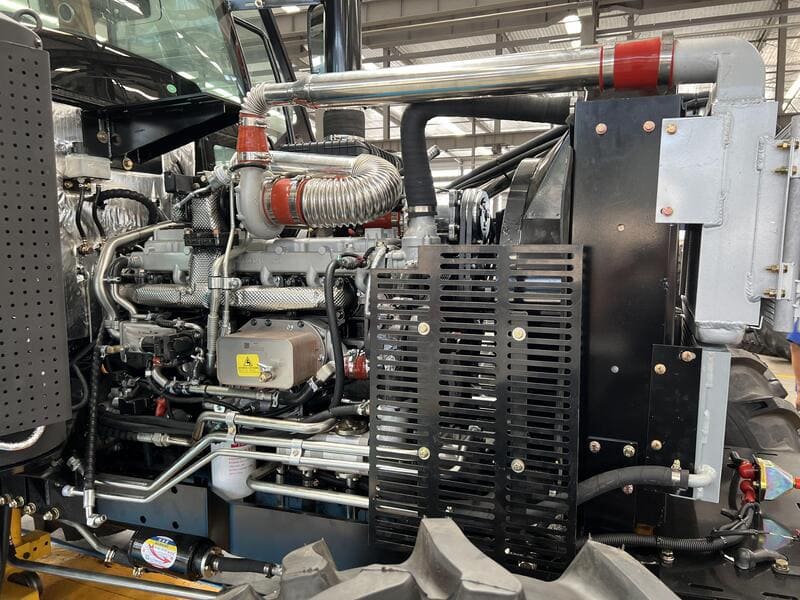
High Torque at Low Speeds
When I first experienced the sheer force of a diesel engine, it was like feeling a gentle giant at work. Its ability to generate high torque even at low speeds blew me away, especially during demanding tasks like plowing4. Unlike gasoline engines that need to rev up to deliver power, diesel engines offer a steady and reliable performance without breaking a sweat. This trait is a godsend when tackling tough terrains and stubborn soil.
Fuel Efficiency and Economy
I remember the first time I saw the difference in fuel consumption between a diesel engine and a gasoline one. It was like watching someone sip versus gulp down their drink. Diesel engines convert more of their fuel into usable energy, making them champions of fuel economy. This not only means fewer trips to refuel but also translates into significant cost savings5 over time—a crucial factor in large-scale farming where every penny counts.
Durability and Longevity
There's something reassuring about knowing that your equipment is built to last. Diesel engines, with their robust construction and fewer moving parts like spark plugs, have always stood out for their longevity. I've seen engines that have been passed down through generations, still humming along with just regular maintenance. Investing in a diesel engine is like making a promise to the future of your farm.
| Feature | Diesel Engines | Gasoline Engines |
|---|---|---|
| Torque | High at Low RPM | High at High RPM |
| Fuel Efficiency | High | Moderate |
| Durability | Long-lasting | Moderate |
| Maintenance Needs | Low | Moderate |
Versatility in Agricultural Use
Diesel engines are like the Swiss Army knives of the farm world. Their versatility allows them to power everything from tractors to combine harvesters. I love how seamlessly they pair with various implements like tillers and PTO-driven attachments6, making them indispensable for diverse farming operations.
Safety Considerations
Safety is always on my mind when working with heavy machinery, and diesel engines offer peace of mind here too. Diesel fuel is less volatile compared to gasoline, reducing fire risk on the farm. Plus, its stable storage life means I can keep reserves without worrying about it going bad over time.
Understanding these advantages helps farmers make informed decisions about their equipment investments, ensuring they choose the best tools for their needs while aligning with cost management strategies and safety protocols.
Diesel engines produce high torque at low speeds.True
Diesel engines excel at generating high torque at lower RPMs, crucial for farming.
Gasoline engines are more fuel efficient than diesel.False
Diesel engines convert more fuel into energy, making them more efficient.
Why Are Diesel Tractors Known for Durability?
Ever wondered why diesel tractors are the rockstars of the farming world?
Diesel tractors are famed for their durability because of their robust engine design, exceptional torque, and fuel efficiency. Their resilience to heavy use and long lifespans make them a favorite in agriculture.
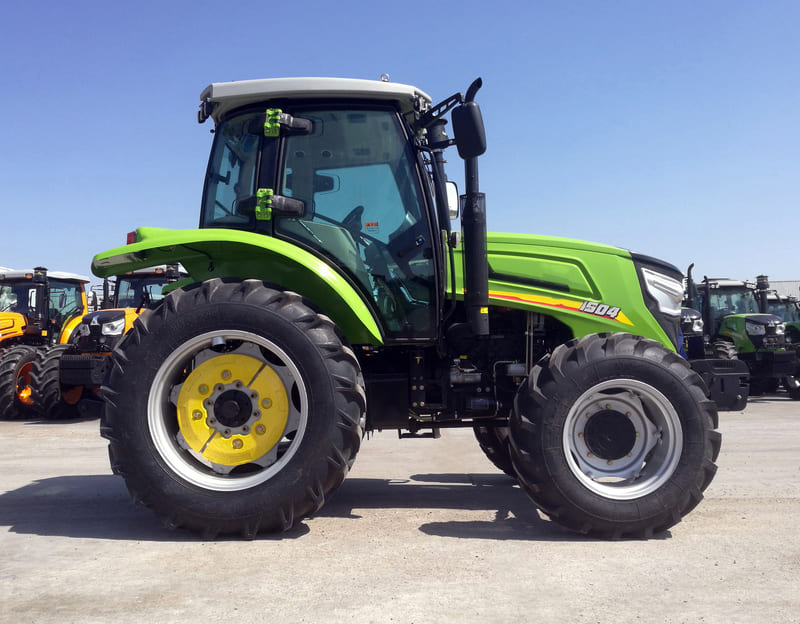
Engine Design and Construction
Growing up on my family's farm, I learned early on that diesel engines are like the sturdy backbone of any good tractor. These engines are crafted with rugged components7, often from cast iron, which allow them to take on the toughest conditions without flinching. I remember my dad saying that a diesel engine isn't just built; it's forged, designed to stand the test of time.
Fuel Efficiency and Economic Benefits
There's something comforting about knowing your tractor won't guzzle fuel like there's no tomorrow. Diesel tractors are like the marathon runners of farm machinery—efficient and enduring. They can keep going longer on a single tank, saving money and cutting down on those pesky maintenance needs. In my experience, this means less time refueling and more time getting things done.
| Comparison | Diesel | Gasoline |
|---|---|---|
| Fuel Efficiency | High | Moderate |
| Maintenance Needs | Low | High |
High Torque Output
I can still picture my old diesel tractor trudging through the fields, its high torque effortlessly pulling through even the heaviest loads. It's this capability that makes diesel tractors unbeatable for tasks like plowing or hauling. They deliver power where it counts—making tough jobs feel surprisingly easy.
Longevity and Reliability
Our family tractor seemed like it could live forever. With proper maintenance practices8, these machines aren't just tools—they're legends, passed down from one generation to the next, embodying reliability and steadfastness.
Lower Maintenance Requirements
Diesel tractors don't just talk the talk—they walk the walk. Their simpler design means fewer breakdowns, which translates to fewer headaches and more time focusing on the work that matters. Trust me, knowing you won't be dealing with spark plug issues is a relief.
Versatility in Agricultural Tasks
One of my favorite things about diesel tractors is their ability to transform into whatever tool you need. Whether you're tilling or towing, they adapt seamlessly. It's like having a trusted ally in every agricultural task.
Safety and Storage Advantages
Diesel fuel's stability is another reason farmers sleep better at night—it's less volatile than gasoline, reducing fire risks. Plus, its longer shelf life means you can stock up without worries during busy seasons, providing peace of mind when it matters most.
Understanding these aspects can truly empower buyers to make informed decisions9 when considering diesel tractors for their agricultural needs. And if you're anything like me, you'll appreciate having a durable, reliable partner in your farming adventures.
Diesel tractors have higher fuel efficiency than gasoline ones.True
Diesel engines operate longer on the same amount of fuel, reducing costs.
Gasoline engines are more durable than diesel engines in tractors.False
Diesel engines use sturdier components and materials like cast iron.
What Maintenance Do Diesel Tractors Require?
When I first got my diesel tractor, I didn't realize how much maintenance it required to keep it running smoothly. It's a lot like taking care of an old car you love.
Diesel tractors need regular maintenance such as oil changes, filter replacements, and fuel system inspections. Keeping an eye on the cooling system, brakes, and electrical components is key for optimal performance.
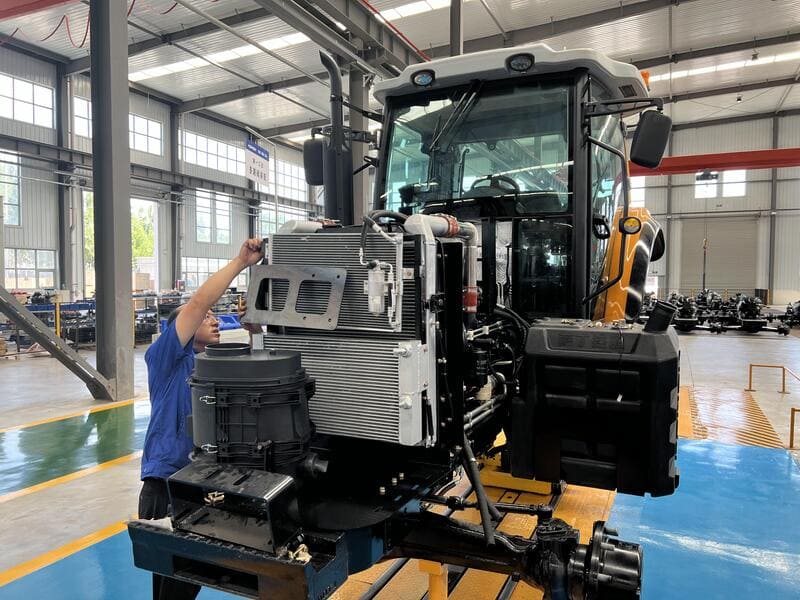
Routine Engine Maintenance
I remember the first time I rolled up my sleeves to perform an oil change on my diesel tractor. It was a crisp morning, and I was determined not to let a lack of experience hold me back. Diesel engines demand more frequent oil changes than their gasoline counterparts. It's like making sure your coffee maker is always clean to brew that perfect cup; regular oil changes keep the engine purring.
- Oil Changes: Diesel engines typically require more frequent oil changes than gasoline engines. Consult your manual for specific intervals.
- Filter Replacements: Checking and replacing filters is another essential task. Just like you wouldn't want a clogged air vent in your house, your tractor's fuel, air, and oil filters need attention to avoid costly repairs.
Cooling System Care
I'll never forget the time my tractor overheated during a long day in the fields. The panic set in as I watched the temperature gauge rise, a reminder of how crucial the cooling system is.
- Coolant Levels: Ensuring the coolant levels are topped up can prevent such heart-stopping moments.
- Radiator Inspection: Clean the radiator to remove debris and ensure proper airflow.
- Thermostat Functionality: Checking the thermostat? It's like making sure your oven heats up before you bake.
Cooling System Maintenance Guide11
Brake and Tire Inspection
There was this one time when I underestimated the wear on my tractor's brakes, and let's just say it was a lesson learned the hard way. Now, I inspect the brake pads and discs regularly because safety should never be compromised.
- Brake Pads and Discs: Ensure they aren't worn out.
- Tire Pressure: Maintain recommended tire pressure for better traction and fuel efficiency.
- Tire Tread Depth: Check for even wear and replace as necessary.
| Component | Action Required | Frequency |
|---|---|---|
| Oil | Change | Every 100 hours |
| Air Filter | Inspect/Replace | Every 200 hours |
| Coolant | Check/Refill | Monthly |
| Brakes | Inspect | Every 300 hours |
| Tires | Pressure Check/Adjust | Weekly |
Electrical Systems Check
A reliable electrical system is crucial, much like having a flashlight with fresh batteries when the power goes out. Regular battery checks for corrosion and ensuring all lights work properly can save you from unexpected hiccups during nighttime tasks.
- Battery Health: Check for corrosion on terminals and charge levels.
- Lighting Systems: Ensure all lights function properly for safe operation.
- Wiring Inspection: Look for frayed wires or loose connections that could short-circuit.
Following these maintenance routines has kept my diesel tractor not only reliable but also efficient, proving that a little care goes a long way in extending its life and enhancing performance. It's amazing how these steps not only save me time and money but also give me peace of mind every time I start the engine.
Diesel tractors need more frequent oil changes than gasoline ones.True
Diesel engines accumulate soot faster, necessitating more frequent oil changes.
Checking tire pressure monthly is sufficient for diesel tractors.False
Tire pressure should be checked weekly to ensure safety and efficiency.
Are Diesel Tractors More Versatile Than Electric?
Choosing between diesel and electric tractors can feel like picking a partner in farming adventures.
Diesel tractors tend to be more versatile than electric ones, thanks to their higher torque, longer operation times, and compatibility with various implements. But don't overlook electric tractors—they're eco-friendly and easier on maintenance.
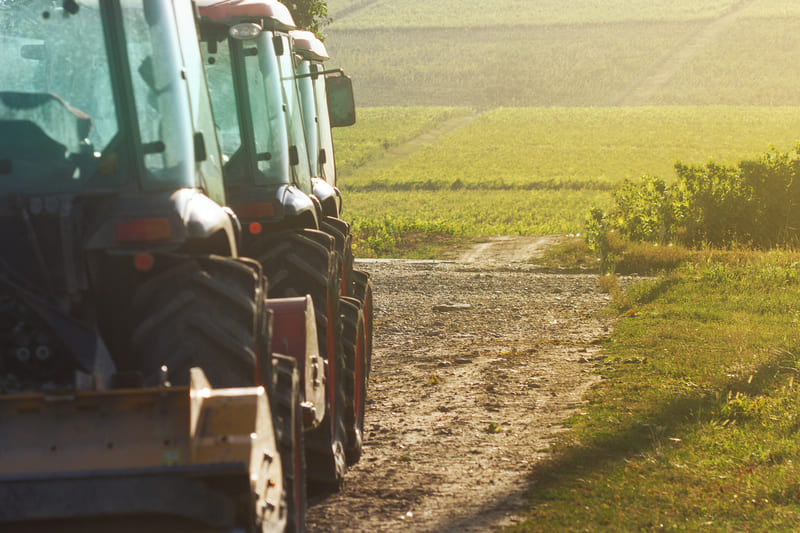
Torque and Power Output
When I first got into farming, I remember struggling with the decision of whether to go for a diesel or electric tractor. Diesel tractors are like the workhorses of the field. They boast high torque, which is a fancy way of saying they have a lot of pulling power even at low speeds. This makes them perfect for heavy tasks like plowing through tough soil or towing large loads. On the other hand, electric tractors are like the sprinters—quick off the mark with instant power delivery. So, if you’re all about getting things done fast, they might catch your eye. Understanding torque14 is key to knowing what your tractor can handle.
Operating Time and Fuel Efficiency
One of my biggest concerns was how long I could work without interruptions. Diesel tractors win here; they're like marathon runners. They can keep going for hours without needing a break, especially since they’re more fuel-efficient than their gasoline counterparts. If you're working in remote areas without charging facilities, this is crucial. Meanwhile, electric tractors need a pit stop for charging more frequently, so they’re better suited to areas with reliable electricity. You might find this comparison of operating times15 useful.
| Aspect | Diesel Tractors | Electric Tractors |
|---|---|---|
| Torque Output | High | Moderate |
| Operating Time | Long | Short |
| Maintenance | Moderate | Low |
Environmental Impact
While diesel tractors do emit more pollutants, electric tractors are often hailed as the heroes of green farming. However, it’s not all black and white; the source of your electricity plays a big role in your overall carbon footprint16. It’s a bit like choosing between paper or plastic bags—you need to consider the entire lifecycle.
Maintenance and Longevity
I have to admit, I’m not a fan of spending weekends maintaining machinery. Diesel engines need regular check-ups but less so than gasoline engines. Electric tractors simplify things even further with fewer moving parts, though you might need to worry about battery life in the long run.
Compatibility with Implements
One of the reasons I leaned towards diesel was their ability to handle a broad array of attachments. From tillers to box blades, diesel tractors are versatile partners ready to tackle diverse agricultural tasks. It’s worth checking out implement compatibility17 when weighing your options.
Cost Considerations
Initially, diesel tractors may seem pricier, but they often pay off with lower fuel costs and longer lifespans. Electric tractors can be cheaper to maintain, which might appeal if you’re looking to save on running costs. But remember, batteries can be pricey upfront.
In conclusion, diesel tractors shine in versatility, especially if you need power and endurance. Meanwhile, electric models bring eco-friendly benefits and simplicity in maintenance. Your choice depends on what suits your needs best and the infrastructure you have available.
Diesel tractors have higher torque than electric ones.True
Diesel engines provide high torque at low speeds, ideal for heavy tasks.
Electric tractors require less maintenance than diesel ones.True
Electric models have fewer moving parts, reducing maintenance needs.
Why is Diesel Fuel Considered Safer for Agricultural Use?
Have you ever wondered why diesel is the go-to choice for so many farmers?
Diesel fuel is widely considered safer for agricultural use than gasoline because of its lower flammability, making it ideal for operating heavy machinery on farms.
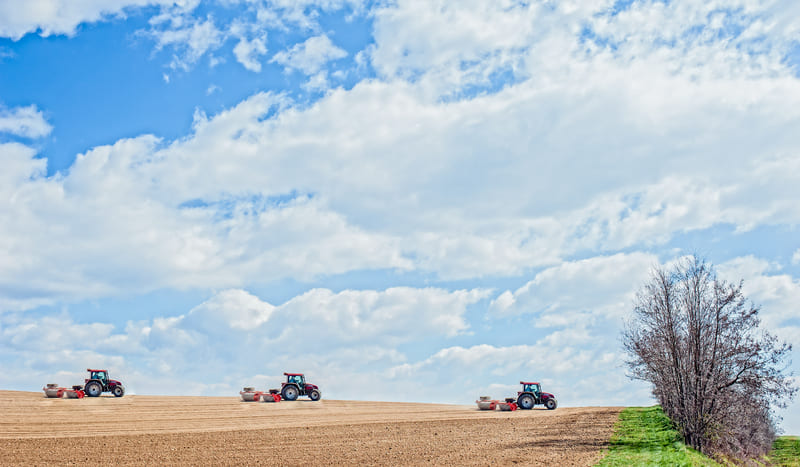
Understanding Diesel Fuel Properties
I remember when I first started working with tractors. I quickly learned that diesel's low volatility was a godsend—no accidental ignition, no sudden fires. Diesel offers high energy density and efficiency, crucial for running those hefty machines. The torque at low speeds? Perfect for plowing through those stubborn fields.
| Feature | Diesel Fuel |
|---|---|
| Flammability | Lower than gasoline |
| Energy Density | Higher |
| Torque | Better at low speeds |
Environmental Considerations
While diesel has its perks, I can’t ignore the environmental impact. Diesel emissions are a concern, but modern engines are equipped with emission control technologies like Selective Catalytic Reduction18. I've seen farmers opt for biodiesel blends—renewable and kinder to the planet.
Safety in Storage and Use
Diesel’s lower flammability makes it much safer to store and handle than gasoline. I always stress the importance of adhering to safe storage practices—avoiding leaks or contamination is crucial. Regulations often require specific containment systems to manage spills effectively.
If you’re curious about the nitty-gritty of diesel storage, check out diesel storage regulations19 for some comprehensive guidelines.
By weighing these factors, farmers can make informed choices about using diesel fuel effectively. This insight is essential for safely operating heavy agricultural equipment20 and complying with environmental standards.
Diesel fuel is less flammable than gasoline.True
Diesel's lower volatility reduces accidental ignition risk, enhancing safety.
Diesel engines produce less torque at low speeds.False
Diesel engines provide more torque at low speeds, aiding heavy tasks.
Conclusion
Diesel farm tractors excel in fuel efficiency, torque, and durability, making them ideal for heavy agricultural tasks. Their longevity and lower maintenance needs enhance productivity and cost-effectiveness for farmers.
-
Understanding diesel's higher compression ratios helps in appreciating its fuel efficiency advantages over gasoline. ↩
-
Discover how reduced maintenance requirements contribute to long-term savings with diesel tractors. ↩
-
Learn about the comprehensive advantages of diesel tractors in agricultural operations. ↩
-
Discover why high torque at low RPM is crucial for effective farming tasks and how it enhances machinery performance. ↩
-
Learn how diesel engines provide cost-effective solutions through superior fuel efficiency, reducing overall operational expenses. ↩
-
Explore how diesel engines power versatile PTO-driven attachments, increasing farm machinery's functionality. ↩
-
Explore how diesel engines use sturdier materials, enhancing durability and reducing wear. ↩
-
Discover effective maintenance strategies that prolong diesel tractor lifespan. ↩
-
Explore how diesel engines use sturdier materials, enhancing durability and reducing wear. ↩
-
Discover step-by-step guidance on changing oil to enhance engine efficiency. ↩
-
Learn essential tips to prevent overheating and extend your tractor's lifespan. ↩
-
Ensure safe operation with expert advice on brake maintenance. ↩
-
Keep your tractor running smoothly by maintaining its electrical components. ↩
-
Understanding torque helps evaluate a tractor's capability for various agricultural tasks. ↩
-
This comparison will help determine which tractor suits long-duration tasks better. ↩
-
The environmental benefits of electric tractors depend on energy sources. ↩
-
Knowing compatibility can enhance the versatility of tractor usage. ↩
-
Learning about this technology can help reduce emissions from diesel engines, contributing to sustainable farming practices. ↩
-
Understanding these regulations ensures compliance with legal standards and helps prevent environmental damage. ↩
-
Implementing these practices can enhance farm safety and prevent accidents during machinery operation. ↩

